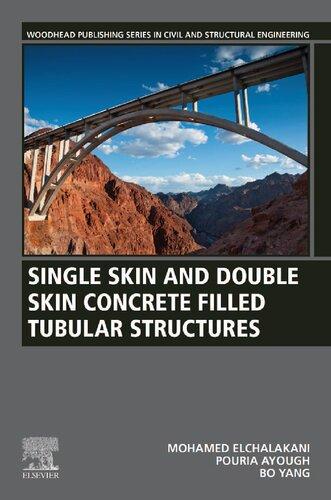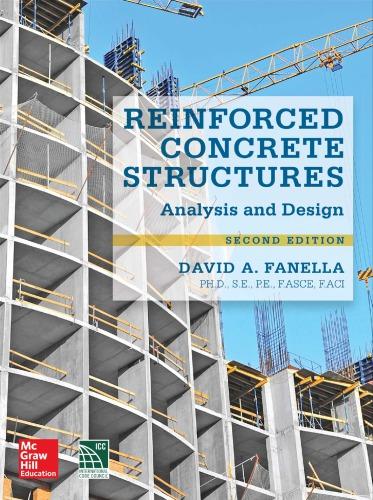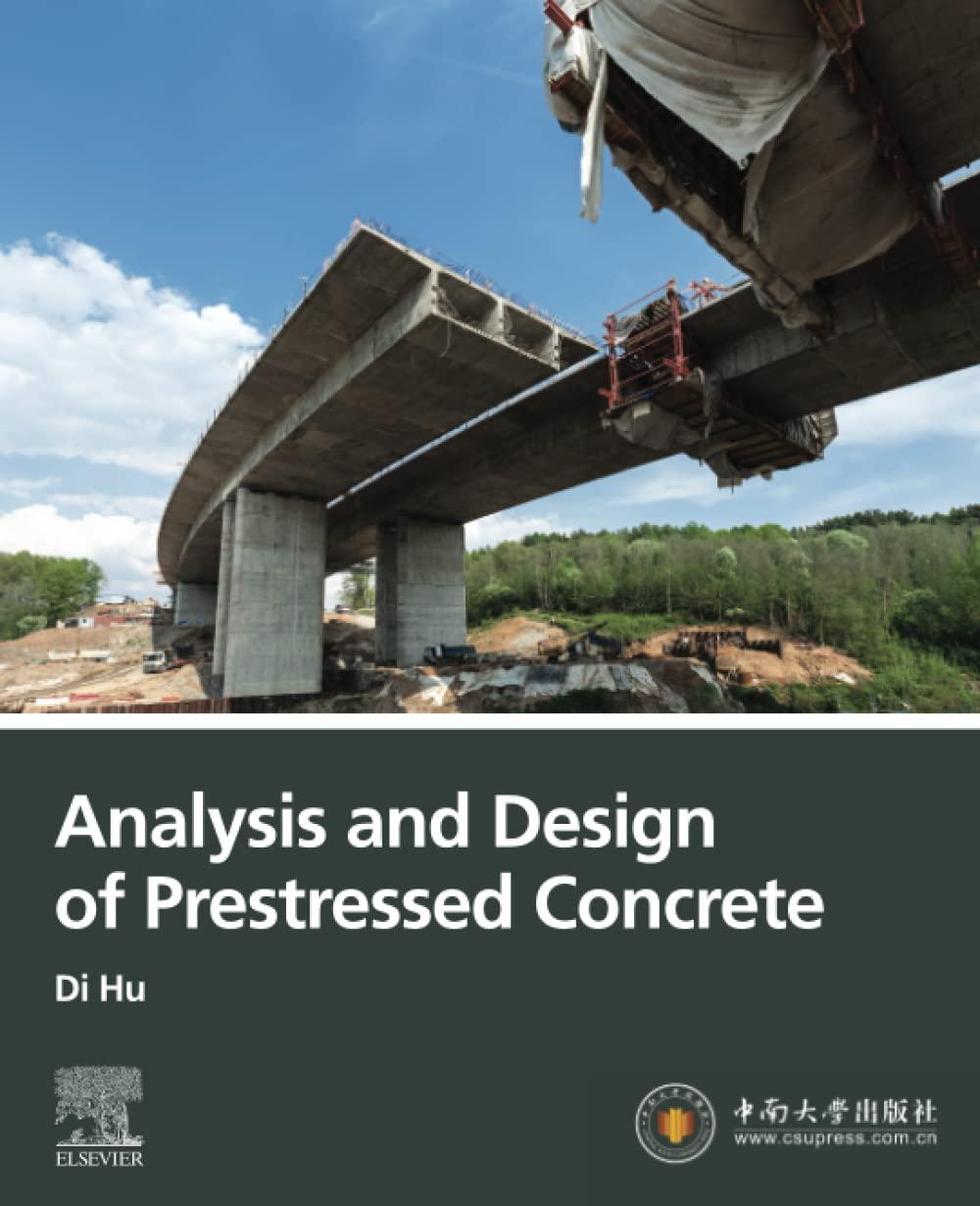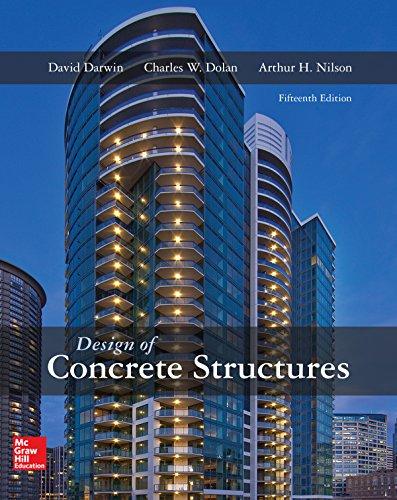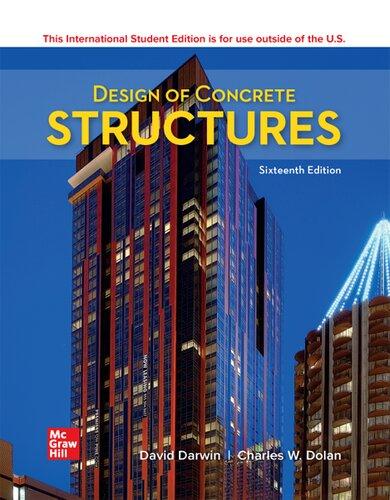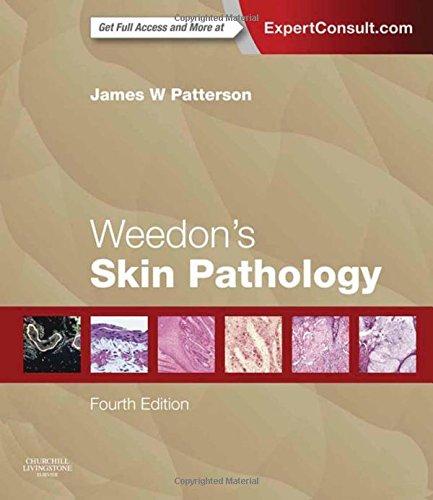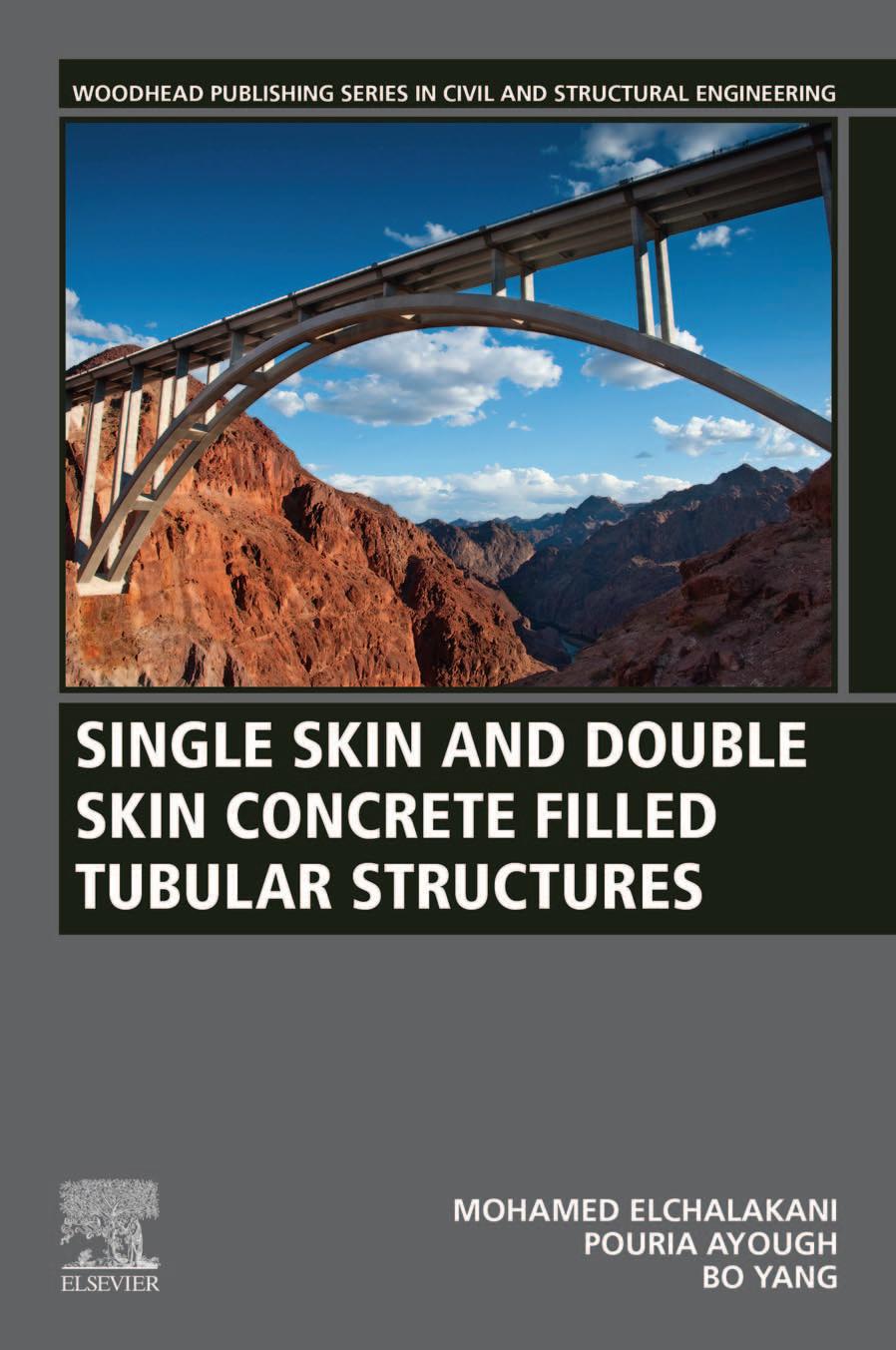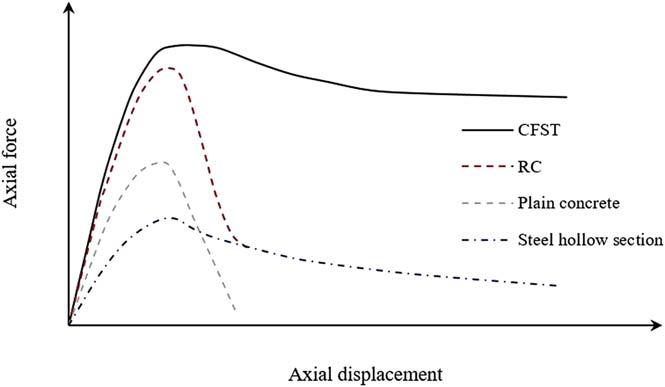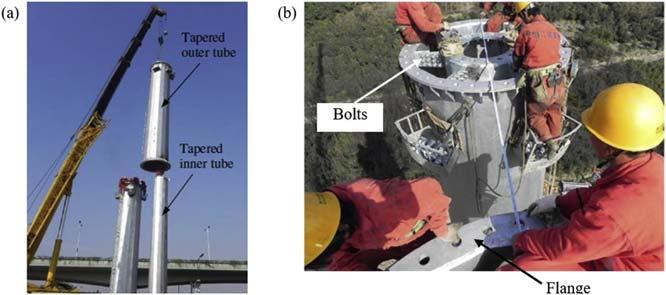Acknowledgments
Theauthorswouldliketoacknowledgethepeoplewhohelpedtoprepare andreviewthemanuscript:Laila,Aya,YaseenandFaroukElchalakanifor reviewing Chapters1to6;ProfMostafaFahmiHassaneinforproviding materialsin Chapters1to6;DrMinhaoDongforprovingexperimental resultsin Chapter2;A/ProfSabrinaFawziaforreviewing Chapters5 and6;andDrShovonaKhursuforreviewing Chapters4and5
Theauthorsaregratefulfortheadviceoncompositestructures receivedfromeminentresearchersincivilengineeringfromdifferent partsoftheworld,includingProfSherifEl-TawilfromMichiganUniversity;ProfAlaaMorsyfromArabAcademyforScience,Technology,and MaritimeTransport;ProfMetwaliAbuHamadfromCairoUniversity; ProfSherifSafarandProfEzz-EldinSayedAhmedfromtheAmerican UniversityinCairo;ProfXiao-LingZhaofromUNSW/MonashUniversity;ProfGangadharaPrustyandProfSerkanSaydamfromUNSW;Prof NieShidongfromChongqingUniversity;DrShageaAlqawzai,ProfKang Chen,ProfLeShen,andDrMiaoDingfromChongqingUniversity; A/ProfNorHafizahRamliSulongandDrSabrinaFawziafromQUT; A/ProfZainahBintiIbrahimfromtheUniversityofMalaya;ProfAllan ManalofromUSQ;ProfHuaYang,ProfLanhuiGuo,andProfWeiZhou fromHarbinInstituteofTechnology;A/ProfMuhamadHadifromWollongongUniversity;DrMohamedAlifromtheUniversityofAdelaide; ProfEmadGad,ProfRiadhAl-Mahaidi,andProfJaySanjayanfrom SwinburneUniversity;ProfMostafaHassaneinfromTantaUniversity; ProfTong-BoShaofromSichuanUniversity;ProfDilumFernandoand DrChrisBecketfromtheUniversityofEdinburgh;ProfHongHao, DrThongPham,andDrWensuChenfromCurtinUniversity;ProfJingsi HufromHunanUniversity;ProfBrianUyandDrMichaelBambachfrom theUniversityofSydney;DrAfaqAhmedfromTaxilaUniversity;Prof SherifYehiafromAmericanUniversityinSharjah;andfinallyProfAli KarrechandDrMinhaoDongfromtheUniversityofWesternAustralia; andProfTianyuXiefromSouthChinaUniversityofTechnology.
Finally,wewishtothankourfamiliesfortheirsupportandunderstandingduringthemanyyearsthatwehavebeenundertakingresearch oncompositestructuresattheUniversityofWesternAustralia,theUniversityofMalaya,andChongqingUniversityduringthepreparationof thisbook.
PraisebetoAllah,theLordoftheworlds,theBeneficent,theMerciful, MasteroftheDayofRequital,TheedoweserveandTheedowebeseech forhelp.
Guideusontherightpath,thepathofthoseuponwhomThouhast bestowedfavours.Notthoseuponwhomwrathisbroughtdown,nor thosewhogoastray.
TheHolyQuran,SurahAl-Fatiha.
1.1Introduction
Theterm‘compositestructures’refertostructuresinwhichdifferent materialssuchastimber,steel,concrete,andmasonryareusedsimultaneouslyforconstruction.Themostcommontypeofcomposite constructionisthesimultaneoususeofsteelandconcretetoformsteelconcretecompositestructures.Steel-concretecompositestructuralmembersareknownaseconomicmembersandhavebeenusedtoconstruct variousstructuretypes.Itisaverywell-knownfactthatsteelmembersare susceptibletobuckling,whiletheirtensilestrengthisremarkable. Conversely,plainconcretememberscanwithstandalargemagnitudeof compressiveforce;however,theirtensilestrengthisdeficient.Therefore, thesimultaneoususeofsteelandconcreteallowsthestructuraldesigners totakeadvantageofsteelandconcreteandneutralizeeachmaterial’s drawbackbyusingtheothermaterial.Bytakingthisviewpoint,most structuralmemberssuchasslabs,columns,beams,andtrussescanbe constructedusingsteel-concretecompositemembers.Themainfocusof thecurrentbookistounderstandthestructuralbehaviorofconcrete-filled steeltubular(CFST)membersandconcrete-filleddoubleskinsteel tubular(CFDST)membersasoneofthemostrecentformsofcomposite members.Otherstructuralmembersarebeyondthescopeofthisbook.
1.2AdvantagesofCFSTandCFDSTmembers
Priortothedevelopmentofstructuraldesigncodesandregulations,a deepunderstandingofthebehaviorofstructuralmembersandknowing theperformanceandtheirfailuremechanismundertheconsidered loadingconditionarerequired.Usingtheavailablecodestodesign structuralmemberswithoutunderstandingtheirmaterialandstructural behaviorturnsmathematicalformulasintosetsofvagueconcepts. Therefore,theresultsoftheexperimentaltestsperformedonCFSTand CFDSTmembersarepresentedinthisbooktoshowtherealstructural behaviorofmembers.Certainly,experimentaltestsprovidevaluable informationregardingthebehaviorofstructuralmembers.However,for thoroughlyassessingtheinfluenceofdifferentparameterssuchas members’geometricandmaterialproperties,loadingconditions,initial geometricimperfections,andresidualstress,itisrequiredtofabricatea largenumberofspecimensintheadvancedstructuralengineeringlaboratories,whichcanbetime-consumingandexpensive.Recentimprovementsinthecapacitiesofcomputersinperformingcomplex mathematicalcalculations,aswellasthedevelopmentoffiniteelement (FE)softwarelikeABAQUSandANSYS,allowresearchersandstructural
engineerstoprofoundlyinvestigatethestructuralperformanceofmembersandstudytheirphysicalbehavior.Asaresult,thebehaviorofCFST andCFDSTmembersarestudiedthroughtheresultscapturedfromthe nonlinearFEanalysisinthisbook.AfterabasicunderstandingofCFST andCFDSTmembers’behavior,theavailableinternationaldesign regulationsfordesigningCFSTandCFDSTcolumns,beams,andbeamcolumnsareintroduced.Additionally,themostrecentdesignmodels developedbasedontheexperimentalandnumericalanalysisof compositemembersareincludedinthisbook.Designexamplesof compositemembersareutilizedwidelythroughoutthebook.
CFSTmembersconsistofahollowsteeltubefilledwiththeconcrete core,withorwithoutsteelreinforcementbars.Comparedwithhollow steelsectionsorthereinforcedconcrete(RC),thestructuralperformance ofCFSTmembers,suchastheirductility,compressive,bending,torsional strengths,fireresistance,andenergyabsorptioncapacities,areremarkablybetter.Besides,steeltubescanalsoactasconcreteformworkduring theconstructionprocesstoreducethetimeandcostofconstruction.These advantagesofCFSTmembersoverconventionalsteeltubeshaverecently attractedtheattentionofcivilengineersandhaveledtotheirwideusein recentstructures.TheideologybehindtheuseofCFSTmembersisthat theconcretecorecanavoidordelaythelocalbucklinginthesteeltubes. Besides,thebrittlebehavioroftheconcretematerialcanbehighly enhancedbytheconfinementeffectprovidedbythesteeltube. Fig.1.1 showsthecomparisonbetweendifferentsteeltubessuchassquare hollowsection(SHS),circularhollowsection(CHS),squareCFST,and circularCFST,basedontheiraxialstrengthundercompression.The compressivestrengthoftheconcreteusedinthesesteeltubeswasaround 40MPa.Besides,theschematicviewoftheaxialload-displacement
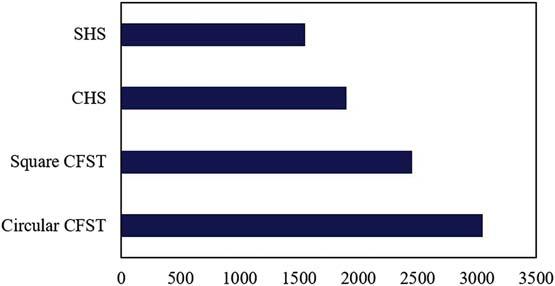
FIGURE1.1
FIGURE1.2 Comparisonbetweentheaxialcompressivebehaviorofsteelhollow sections,CFST,RC,andplainconcrete. Developmentsandadvancedapplicationsofconcrete-filled steeltubular(CFST)structures:members.JConstructSteelRes2014;100:211 228. https://doi.org/ 10.1016/j.jcsr.2014.04.016
responsesofCFST,RC,plainconcrete,andhollowsteelsectionispresentedin Fig.1.2.Itcanberecognizedfromthefiguresthatfillingthesteel tubewithconcretecouldhighlyenhancethecompressivecapacityofthe column.Inaddition,confiningtheconcretewiththesteeltubeimproved theresidualstrengthandductilityofthecolumn.
DespitetheadvantagesofCFSTmembers,theyalsohavesomedisadvantages,whichareasfollows:
1. Theoutersteelusuallytakesalargepartoftheexternalaxialloadas comparedtotheconcretecorebecauseofitshigherstiffnessunder compositeaction.
2. Theconcretecoreclosetotheneutralaxishasaninsignificant contributiontotheflexuralstrength.
3. Thecontributionoftheconcretecoreinenhancingthetorsional strengthisinsignificant.
4. Theinitialelasticdilationofconcreteunderaxialcompressionis relativelysmall,andthustheconfiningpressureprovidedbythe steeltubetoconcreteisrelativelylowduringtheelasticstage.
5. Theheavyself-weightoftheconcretecanlimittheperformanceof CFSTduetothestrength-to-weightratio.
Fromtheabovediscussion,itisquiteclearthatthecentralpartofthe concretecoreoftheCFSTcolumncaneffectivelybereplacedbyanother smallerhollowsteeltubewithsimilaraxial,flexural,andtorsional
1.3ErectionofCFSTandCFDSTcolumns
strength.ThisformofcolumnconstructionisknownastheCFDST columns.CFDSTmemberspossessseveraladvantagesoverthatofthe CFSTcolumn,whichcouldbesummarizedasfollows:
1. CFDSThavehigherflexuralandtorsionalstrengthascomparedto theCFSTmembers.Additionally,theirstrength-to-weightratiois improvedsignificantlybyreplacingthecentralconcretewithasteel tubeofamuchsmallercross-sectionalarea.Moreover,theinnertube expandslaterallyundercompressionloading,and,hencethe confiningpressureprovidedtotheconcretealsoincreases. Consequently,theinitialconfiningpressurebuildsupmorerapidly inCFDSTascomparedtoCFSTmemberssothattheirelastic strengthandstiffnessareenhanced.
2. CFDSTmemberscontainlessconcrete,whichcreatesamore sustainableenvironmentbyreducingtheembodiedenergylevels ofthemember.
3. Thecavityinsidetheinnertubeprovidesadryatmospherefor facilitiesorutilitiessuchaspowercables,telecommunicationlines, anddrainagepipes.Therefore,CFDSTmembersarechieflyuseful formaritimestructures.
1.3ErectionofCFSTandCFDSTcolumns
Duringtheconstruction,theinnertubeoftheCFDSTcolumniserected first.Thisisthenfollowedbytheerectionoftheoutertube.Afterthe erectionofbothtubes,theconcreteispouredinbetweenthem. Fig.1.3
FIGURE1.3 ErectionofCFDSTcolumns.(a)duringconstructionand(b)connection details. Developmentsandadvancedapplicationsofconcrete-filledsteeltubular(CFST)structures: members.JConstructSteelRes2014;100:211 228. https://doi.org/10.1016/j.jcsr.2014.04.016.
from[7]providestheerectionprocessofCFDSTcolumnsusedintransmissiontowers.Theplatesandboltsareusedtofixthepositionofthe tubes,whiletheflangesonbothendsofeachtubeareusedtoconnectit withitsextension.AsimilarprocedureisusedtoconstructCFSTcolumns, exceptthattheinnersteeltubeisnotinstalled.
Fabricationofhollowsteeltubescanbedonebyweldingsteelsheetsor usingthehot-rolledorcold-formedprocess.Dependingonthecrosssectionofthesteeltubes,differentshapesofcompositememberscanbe constructed,asshownin Fig.1.4
1.4Applicationsofcompositemembers
AppropriatestructuralperformanceofCFSTandCFDSTmembershas convincedstructuralengineerstousethemindifferenttypesofstructures likeindustrialstructures,structuralframes,electricitytransmittingpoles, andspatialconstructions.InChina,forexample,CFSTmembershave beenusedformorethan50years.In1996,structuraldesignersofsubway stationsinBeijingusedCFSTmembersastheprimarycolumns.Theuse ofCFSTmembersfortheconstructionofpowerplantbuildingsbacksto the1970s[7].Historically,theconceptof“doubleskin”composite constructionwasdevisedforuseinsubmergedtubetunnels[12].Agraph presentingthecross-sectionofthedoubleskincompositeconstructionis shownin Fig.1.5.Thiscross-sectionwasusedforthefirsttimeintheKobe MinatojimaSubmergedTunnelinJapan.Inthissection,someexamples fromtheuseofCFSTandCFDSTmembersinpracticearepresented.
Inthe1980s,andbyacceleratingthebuildinghigh-risestructures, structuralengineersdesignedandbuiltmanybuildingsusingCFST membersinBeijingandFujian,Chinatoreducethecolumns’size[9].
CFSTmembersaretypicallyservedasthecolumnsofcompositeframe systemsforbearingcompressiveloads,andtheyaregenerallyconnected tosteelorRCbeams.Toimprovethelateralresistanceofhigh-rise buildings,CFSTcompositeframestructuresaredesignedbyemploying RCcoretubesorsteelshearwallsasthelateralloadresistingsystem.The hybridstructuralsystemsconsistingofCFSTcolumnswiththecoretubes
FIGURE1.4 Differentshapesofcompositemembers.
Another random document with no related content on Scribd:
would be safest for her to move her patient to the rear. And here she is now; and a gentler nurse no one ever had. He never mentioned her name to me; but she tells me that she knew him slightly, once. It is a pity he went off to Taylor’s, for she would have nursed him, too, I am sure.
“He told me a lot of things to tell you about myself, but I shan’t repeat them, as I don’t think I behaved any better than hundreds of others that I saw around me. I could not help crying when they took him from his cot by my side; for from the way he told me good-by, I saw that he did not expect ever to see me again. No brother was ever kinder than he has been to me. The last thing he said to me was to give his dear , dearloveto you (those were his words), and to say that he relied on you to keep your promise. I asked him what promise, but he said never mind, she will remember.”
In conclusion, Edmund besought his mother to come on to see him. Miss Mary was as good as could be, but, after all, one’s mother was different, etc., etc., etc.
“What promise could he have alluded to?” asked Alice.
“That is just what I asked mother,” said Lucy. “Do you believe in presentiments, Alice? I do; and when mother told me what her promise to the Don was” (here Charley, who had not spoken a word, rose and left the room), “I was filled with dreadful forebodings. You know that during the latter part of his stay down in the country, before joining the army, the Don spent a great deal of his time with us. One afternoon we were taking a little stroll, before tea, Mr. Frobisher walking with me, and, some distance behind us, the Don, with mother. She stopped at our family cemetery to set out some plants; and she tells me that it was on this occasion that she made him the promise in question.
“She says that when she pointed out to him the spot that she had selected for her own resting-place, he looked down for some time, and then said that he had a favor to ask her.
“‘I am to join the army, next week,’ said he.
“‘Well?’ said she.
“‘There is no fighting without danger,’ said he. ‘Suppose I should fall?’
“‘Oh, I hope not!’ said mother.
“‘Yes; but in case I do? This, you say, is the spot you have chosen for yourself. If I fall—would you give me two yards of earth just here, at your feet? I would not be in the way there, would I?’ Mother makes a longer story of it, and an affecting one. When she gave him her word (mother took the greatest fancy to the Don from the first day she saw him) she says he was more deeply moved than she should have thought it possible for a big, strong man to be by such a thing. This is the promise he alludes to; and I have a painful presentiment that—”
“Mr. Frobisher recovered from an equally severe wound.”
“Yes, I know; but—”
“Miss Alice,” said a servant, entering the parlor, “there is a soldier at the door, who wants to speak to Marse Charley.”
Alice, going into the hall, found a man standing there. He was in his shirt-sleeves as to his right arm, which was bound in splints.
“Do you wish to see Major Frobisher?”
“Yes, ma’am; I have a letter for him.”
“You may give it to me; I am his wife.”
“Beggin’ your pardon, ma’am, my orders was to give it to him, and nobody else.”
“Very well. Won’t you come in and have something to eat?”
“Thank you, ma’am; I shouldn’t mind a bite, if it wasn’t too much trouble.”
“Walk in and sit down while the servant is getting something for you. You look tired. I hope your arm is not much hurt.”
“Well, sort o’. They broke it for me at Cedar Creek; but I got a furlough by it, and can see my wife and children; so tain’t worth mentionin’.”
“Cedar Creek! Do you know Captain Smith? How is he?”
“He is my captain, ma’am, and he was the one what writ the letter. He is pretty bad, I am afeard.”
“This is Major Frobisher,” said Alice, as Charley entered the room. Charley read the note and put it hurriedly into his pocket. After asking the man a few questions, he was about to leave the room:
“Won’t you let me see it?” asked Alice.
“Not yet,” said Charley; and thanking the soldier, he went up-stairs to his room.
Alice heard the key turn in the lock; and when she went up-stairs, later, to beg him to come down to tea, she did not find him in the room. An hour afterwards he came in, saying that he had been to see Mrs. Poythress, that she was to set out for Harrisonburg in the morning, and that he was going with her.
It was in vain that Alice urged his weak condition. “A friend is a friend,” he kept repeating. And so Alice set about packing his valise. Just as she had finished this little task the baby stirred; Alice went up to his crib and patted him till he thought better of it and nestled down into his pillow again.
“Theodoric! I think it such a pretty name! The idea of my thinking you were going to call him Peter! Won’t you tell me something of his namesake, Lucy’s brother? Mother tells me that she vaguely remembers that there was some dreadful mystery about his loss, which occurred when I was about four years old; but she did not know the Poythresses at that time, and does not remember any of the details, if she ever knew them, in fact. Lucy, in explaining the scene at the christening yesterday, told me it was a long story, and a sad one, so I did not press her. But won’t youtell me? You never tell me anything. Now be good, for once!”
Alice was bringing to bear upon her obdurate husband the battery of all her cajoleries, when, to her surprise, he surrendered at once.
“Yes,” said he, “since our child is named in his honor, I will tell you the story of Theodoric Poythress.”
In the next chapter that story will be found; though not in as colloquial a form as that in which Charley actually told it, and with most of Alice’s interruptions omitted.
CHAPTER LXXVII.
“Theodoric was the eldest son of Mr. and Mrs. Poythress. He was born on the 15th day of April, 1832, I on the 2d of the preceding March; so that I was his senior by six weeks. Our intimacy began when we were not more than six years old. Mr. Poythress had a tutor for Theodoric at that period, by whom half a dozen of the neighbors’ sons were taught, myself among the number. I was put across the River every morning; but there was an understanding between my mother and Mrs. Poythress that whenever the weather grew threatening, I was to be allowed to spend the night with Theodoric. During the winter and early spring there was hardly a week that I did not pass at least one night with him; he, in turn, spending Friday night and Saturday with me. Ah, how happy we were! When two congenial boys are thrown together in that way, they get about as much out of life as is to be gotten at any other age. I can recall but one quarrel that we ever had; and that was when I said, one day, that my mother was, beyond doubt, the best woman in the world. We compromised the matter, in the end, by reciprocal admissions that the mother of each was best to him.
“I think few boys were ever better friends than we; and for the reason, no doubt, that we differed so. Even as a boy I had an indolent, easy-going way of taking things as they came. My anger, too, was hard to arouse, and as easy to appease; while his was sudden and fierce, and, I am sorry to add, implacable. And this is true generally, notwithstanding the proverb. It may be that people who give way to little gusts of temper soon forget their wrath; but my observation has taught me that unappeasable, undying resentment is always found associated with readiness to take offence. This, at any rate, was Theodoric’s disposition.”
“I trust,” said Alice, “that our boy will not resemble him in that respect.”
“I hope not. But that was the only serious defect in his character; in my partial eyes, at least. He was generous, chivalrous, truth itself, absolutely unselfish, and, withal, paradoxical as it may appear, as tender-hearted as a girl. I remember a little incident which shows this. One day, as we school-boys were racing about the lawn during recess, a wretched-looking man walked up to us and asked for food. He was the first beggar we had ever seen, and two or three of us ran into the kitchen and returned with enough for five men. While he ate, the drunken old humbug,—for such he proved to be,—taking advantage of our simplicity, wrought powerfully on our sympathies by recounting the tale of his woes. He had not tasted food for two days.
“‘Why did you not buy something to eat?’ asked Theodoric, with quivering lip.
“‘I hadn’t any money.’
“‘Then why didn’t you go home to your friends?’
“‘I ain’t got no home and no friends.’
“Whereupon Theodoric burst into a loud boohoo. Some of the boys began to titter; and I think I was just beginning to despise him, a little, as a cry-baby, when his mother, who stood near, threw her arms around him, and said, with brimming eyes and choking voice, ‘God will remember these tears one day, my precious boy!’”
Alice rose, and, stealing softly to her baby, bent over and kissed him.
“You said, just now, that you hoped our boy would not resemble his namesake.”
“I take that back.”
“You will say so all the more when I have shown you what kind of a son he was to that mother.
“I believe that the English race surpasses all others in respect for woman; and I think that, of the English race, the Americans are superior to their brethren across the water in this regard. And I believe, too, that it will hardly be denied that, among Americans, Southerners are conspicuous for this virtue. And it seems to me that of respect for woman, the love for one’s mother is the very crown, and blossom, and glory. It means manliness, it means soul, it means a grateful heart. It is unwritten poetry; and if that be so, then the life of the boy after whom we have named our boy was one beautiful lyric.
“His mother had a great fund of fairy-tales and other stories, which she used to tell us after supper. I can see him now, sitting on a low stool at her feet,—he would never sit anywhere else,—with hands clasped over her knees, drinking in the story, while his eyes clung to the gentle face of the story-teller with a kind of rapt adoration. And such eyes! now flashing with fierce indignation at one turn of the story, now melting with tenderness at another!
“And she could never pass him without his throwing his arms around her and tip-toeing for a kiss. ‘Another! another! another!’ he kept pleading. ‘Go away, you silly boy!’ she would say; but more than once I caught her, behind the door, after one of these little scenes, wiping her eyes with her apron. And once, when Theodoric had left the room, and I, in my simplicity, asked her what was the matter, she burst into a sob. ‘Nothing, my child,’ she said; ‘only, I am too happy.’
“It was hard—”
Charley rose and walked up and down the room three or four times.
“It was hard to lose such a boy as that!”
Alice was silent.
“His love for his mother was his religion. And this brings me to the sad part of my story.
“We Virginians are in the habit of denouncing New England puritanism; unaware, seemingly, that Virginia numbers among her people thousands of puritans.”
Alice looked up, but said nothing.
“And how could it have been otherwise? Are not we, equally with the New Englanders, English? But, as the people who came over in the ‘Mayflower’ belonged to a different class of English society from those who sailed with Captain John Smith” (Charley stopped speaking for a moment, then went on), “our puritanism has assumed a shape so different from that of Massachusetts, that we have failed to recognize it. The aristocratic element of our colonists was so strong and numerous, that it gave a tone to our society which it has never lost. And it is because the maxim that an Englishman’s house is his castle has, among people of a certain social standing, a meaning far wider than its merely legal one, that puritanism never became blatant with us. Hence, though it exists among us,—often in the most intense form,—we have ignored it.”
Alice shook her head, slowly: “I can’t make out what you mean.”
“Well, then, to come to concrete examples,—Mr. Poythress.”
“Mr. Poythress!”
“There lives not a more intense puritan. You have failed to remark it, because he is a gentleman. That forbids his ramming his personal convictions down other people’s throats. He is a puritan for himself and his family only. Nothing could induce him to harbor a bottle of wine under his roof; but believing that every Virginian’s house is his castle, he is equally incapable of resenting its presence on the Elmington table. I have a story about him that you have never heard.
“Years ago, he gave up the use of liquors of all kinds. For some time, however, his guests were as liberally supplied as ever. But at last he gave a dinner at which only his rarest and most costly wines were brought on the table; so that some of the gentlemen even remonstrated at his pouring out, like water, Madeira that his father
had imported. What was the gastronomic horror of these gentlemen to learn, a few days afterwards, that he had caused every barrel in his cellar to be rolled out on his lawn, where, with an axe in his own hands, he staved in the head of every one. From that day to this there has not been a gill of wine or brandy in his house. Yet, to mention the ‘Maine liquor law’ to him is to shake a red flag in the face of a bull. His aversion to drinking is great; but his love of personal liberty is greater.
“Again, would it surprise you to learn that, not so very many years ago, Mr. Poythress favored freeing our slaves?”
“Mr. Poythress an abolitionist!” cried Alice, in horrified amazement.
“No,” replied Charley, smiling, “he was nothing of the kind. He was an emancipationist.”
“I fail to see the difference.”
“They are about as much alike as chalk and cheese. The Virginia emancipationists, of whom a considerable and growing party existed at the time of which I speak, favored the gradual manumission of their own slaves. An abolitionist is for freeing some one else’s. Mr. Poythress quietly spilt his own valuable wine on his lawn. Had he been an abolitionist, he would have headed a mob to burst the barrels of his neighbors.”
“Mr. Poythress an emancipationist,—well!”
“I don’t wonder at your surprise; for he is now the most ardent advocate of slavery that I know. He positively pities all those benighted countries where it does not exist. The abolitionists have converted an enthusiastic apostle of emancipation into an ardent pro-slavery champion; so infuriated is he that the Northern people are unwilling for us to get rid of slavery as they did, and as the nations of Europe have done,—gradually, and without foreign interference; and a man who once looked upon the institution as a blot upon our civilization, now regards it as its crown of glory.
“I have given you these details that you may thoroughly understand what kind of a man Theodoric’s father was. He was, in fact, a puritan in every fibre of his soul. He looked upon the world as a dark valley, through which we had to pass on our way to a better; and it seemed to him that any hilarity on the part of us poor wayfarers smacked of frivolity, to use the mildest term. Dancing he never allowed under his roof, and secular music he rated as a snare for the feet of the unwary. Therefore he shook his head with unaffected uneasiness when he discovered in Theodoric, at a very early age, a passionate love for this half-wicked form of noise. And so, when, year after year, as Theodoric’s birthday came round, and the boy, when asked what he wanted, always answered, a fiddle, his father put his foot down. At last, on his thirteenth birthday, a compromise was effected. Theodoric got a flute; an instrument which Mr. Poythress allowed to be as nearly harmless as any could be; at least to the performer. I had been piping away on one for a year, but he soon surpassed me. His progress pleased his mother, from whom, in fact, he had inherited his love for music; but his father looked upon the time spent practising as wasted. Conscious, therefore, that his flute annoyed his father, he hit upon a plan to give him as little of it as possible.
“In a little clump of trees, about a quarter of a mile from the house, be constructed a music-desk against an old tree; and thither he repaired, on all fair afternoons, and played to his heart’s content, surrounded by an admiring audience of a dozen or so dusky adherents.
“It was this harmless flute that brought on the catastrophe that I shall presently relate.
“Mr. Poythress’s religion, I need hardly tell you, was of the most sombre character. (I say was; for he is much changed since those days.) It is singular how extremes meet in everything. Puritanism among the Protestants, and asceticism in the Catholic Church, each seek, by making a hell of this world, to win heaven in the next. I have said that Theodoric frequently spent Saturday with me. He was
never allowed to be absent from home on Sunday; and month by month, and year by year, as he grew older, those Sundays grew more and more intolerable to him. It was a firm hand that crammed religion down his throat, and, as a child, he was, if wretched, unresisting. But Theodoric was his father’s own son. He too loved personal liberty. To be brief, the time came when he hated the very name of religion; and, when we were about thirteen years old, he often shocked me by his fierce irreverence. And, unfortunately, his parents had no suspicion of what was going on in his mind. His love for his mother, equally with his awe of his father, sealed his lips.
“There are those whose discontent is like damp powder burning. It sputters, flashes, smokes, but does not explode. But with Theodoric, everything was sudden, unexpected, violent. He had immense selfcontrol; but it was that of a boiler, that at one moment is propelling a steamer, an instant later has shattered it. There was an element of the irrevocable and the irreparable in all that he did.
“It was, as I have said, the hard, relentless sabbatarianism of Mr. Poythress that bore hardest upon his son. And, when you think of it, what a curse sabbatarianism has been to the world! How the Protestants of England and America ever managed to ingraft it upon Christianity I could never understand; for not only is it without trace of authority in the New Testament, but the very founder of our religion never lost an opportunity of striking it a blow. And I can’t help thinking, sometimes, that when he said, Suffer little children to come unto me, he said it in pity of their tortures on this one long, dreary day in every week. But I am getting away from my story.
“One Sunday—it was the first after Theodoric’s fourteenth birthday he complained of headache. He did not ask to be excused from going to church; but the day was warm, and the road long and dusty, and his mother begged him off; and the family coach went off without him. The party had gone but a few miles, when they learned that owing to the illness of the pastor there would be no service that day. So they turned about.
“At last, hoofs and wheels ploughing noiselessly through the heavy sand, they approached the little clump of trees which we have mentioned. Suddenly an anxious, pained look came into Mrs. Poythress’s face. Mr. Poythress put his hand to his ear and listened. An angry flush overspread his countenance.
“‘Stop!’ cried he to the coachman.
“There could be no doubt about it: it was Theodoric’s flute, and— shades of John Knox!—playing a jig.
“Mr. Poythress opened the door with a quick push and stepped out. ‘Go on to the house,’ said he to the driver.
“A moment later, the carriage turned a corner of the little wood, and Mrs. Poythress saw her boy, seated upon a log, playing away, while in front of him a negro lad, of about his age, was dancing for dear life. A gang of happy urchins stood around them with open mouths. Mr. Poythress was striding down upon the party unperceived.
“The off horse, annoyed by the dust, gave a snort.
“One glance was enough for the audience; and panic-stricken, they were off in an instant, like a covey of partridges.
“The musician and the dancer had not heard the horse, and followed, for an instant, with puzzled looks, the backs of the fugitive sinners.
“When Theodoric saw his father bearing rapidly down upon him, he rose from his rustic seat and stood, with downcast look and pale face, awaiting his approach. The dancer turned to run.
“‘Stop, sir!’
“The father stood towering above the son, shaking from head to foot.
“‘Give me that flute, sir!’ And seizing it, he broke it into a dozen pieces against the log.
“The boy stood perfectly still, with his arms hanging by his side and his head bowed.
“‘You are silent! I am glad that you have some sense of shame, at any rate! To think that a son of mine should do such a thing! When I am done with you, you will know better for the future, I promise you.’ And cutting a branch from a neighboring tree, he began to trim it. ‘And not content with desecrating the day yourself, you must needs teach my servants to do so. How often have I not told you that we were responsible for their souls?’
“‘Lor’, mahrster,’ chattered the terrified dancer, ‘Marse The., he didn’t ax me to dance, ’fo’ Gaud he didn’t. I was jess a-passin’ by, an’ I hear de music, and somehownuther de debbil he jump into my heel. ’Twant Marse The., ’twas me; leastwise de old debbil he would’t lemme hold my foot on de groun’, and so I jess sort o’ give one or two backsteps, an’ cut two or three little pigeon-wings, jess as I was a-passin’ by like.’
“‘Very well, I shan’t pass youby.’
“‘Yes, mahrster, but I didn’t fling down de steps keen, like ’twas Sad’day night, ’deed I didn’t, mahrster; and I was jess a-sayin’ as how Marse The. didn’t ax me; de ole debbil, he—’
“‘Shut up, sir!’
“‘Yes, mahrster!’
“Theodoric gave a quick, grateful glance at his brother sinner.
“Although he was without coat or vest,—for the day was warm,—he did not wince when the blows fell heavy and fast upon his shoulders. At last his father desisted, and turned to the negro lad.
“Mr. Poythress had never, in the memory of this boy, punished one of his servants; but seeing that this precedent was in a fair way of being reversed in his case, he began to plead for mercy with all the volubility of untutored eloquence. Meantime, he found extreme difficulty in removing his coat; for his heart was not in the work; and before he got off the second sleeve he had pledged himself nebber to do so no mo’ in a dozen keys.
“Theodoric stepped between his father and the culprit.
“‘I take all the blame on myself. If there is to be any more flogging, give it to me.’
“His father pushed him violently aside, and aimed a stroke at the young negro; but Theodoric sprang in front of him and received the descending rod upon his shoulders.
“Was this magnanimity? or was it not rebellion, rather?
“‘Do you presume to dictate to me?’
“‘I do not. I simply protest against an injustice.’
“These were not the words of a boy, nor was the look a boy’s look; but his father, blinded by the odiumtheologicum, could not see that a man’s spirit shone in those dark, kindling eyes.
“‘How dare you!’ said the father, seizing him by the arm.
“The boy held his ground.
“This resistance maddened Mr. Poythress, and the rod came down with a sounding whack. It was one blow too many!
“Instantly the boy tossed back his head, and folding his arms, met his father’s angry look with one of calm ferocity.
“The look of an Indian at the stake, defying his enemies!
“The blows came thick and heavy. Not a muscle moved; while the lad who stood behind him writhed with an agony that was half fear, half sympathy. At last he could endure it no longer. Coming forward, he laid his hand, timidly, on his master’s arm.
“‘He nuvver ax me to dance, mahrster, ’deed he nuvver! For de love o’ Gaud let Marse The. ’lone, an’ gimme my shear! My back tougher’n his’n, heap tougher!’
“His master pushed him aside, but the lad came forward again, this time grasping the terrible right arm.
“‘Have mussy, mahrster, have mussy! Stop jess one minute and look at Marse The. back,—he shirt soakin’ wid blood!’
“At these words Mr. Poythress came to himself. ‘Take your coat and vest and follow me to the house, sir,’ said he.
“They found Mrs. Poythress pacing nervously up and down the front porch.
“‘He will not play any more jigs on Sunday, that I promise you. Go to your room, sir, and do not leave it again to-day.’
“The mother, divining what had happened, said nothing; but her eyes filled with tears. The boy turned his face aside, and his lips twitched as he passed her, on his way into the house. Just as he entered the door, she gave a cry of horror and sprang forward; and though the boy struggled hard to free himself, she dragged him back upon the porch.
“‘What is this, Mr. Poythress? What do you mean, sir?’ she almost shrieked.
“Every family must have a head; and Mr. Poythress was the head of his. Few women could have stood up long against his firm will and his clear-cut, vigorous convictions. At any rate, acquiescence in whatever he thought and did had become a second nature with his gentle wife; who had come to look upon him as a model of wisdom, virtue, and piety. She had even reached the point, by degrees, of heartily accepting his various isms; and though she sometimes winced under the austere puritanism that marked the restrictions he imposed upon their boy, she never doubted that it was all for the best. Very well, she would end by saying, I suppose you are right. There were no disputes,—hardly any discussions under the Oakhurst roof.
“Imagine, therefore, the scene, when this soft-eyed woman, dragging her son up to his father, pointed to his bloody back with quivering finger and a face on fire with eloquent indignation!
“‘Were you mad? What fiend possessed you? And such a son! Merciful Father,’ she cried, with clasped hands, ‘what have I done, that I should see such a sight as this! Come,’ said she; and taking her son’s arm, she hurried him to his room, leaving Mr. Poythress
speechless and stunned; as well by shame as by the suddenness of her passionate invective.
“There she cut the shirt from his back, and after washing away the blood, helped him to dress. ‘Now lie down,’ said she.
“He did as he was bidden; obeying her, mechanically, in all things. But he spoke not a single word.
“She left the room and came back, an hour afterwards. His position was not changed in the least. Even his eyes were still staring straight in front of him, just as when she left the room. She said, afterwards, that there was no anger in his look, but dead despair only. When she asked if he would come down to dinner, there was a change. He gave her one searching glance of amazement, then fixed his eyes on the wall again. At supper-time he came down-stairs, but passed by the dining-room door without stopping. His mother called to him, but he did not seem to hear. He returned in half an hour, and went to his room. He had gone, as she afterwards learned, to the cabin of the negro lad, and called him out. ‘You stood by me to-day,’ said he. ‘I have come to thank you. I shan’t forget it, that’s all.’ And he wrung his hand and returned to the house.
“At eleven his mother found him lying on his bed, dressed. ‘Get up, my darling, and undress yourself and go to bed.’
“He rose, and she threw her arms around him.
“Presently, releasing himself, gently, from her embrace, he placed his hands upon her shoulders, and holding her at arm’s length, gave her one long look of unapproachable tenderness; then suddenly clasping her in his arms, and covering her face with devouring kisses, he released her.
“‘Good-night, my precious boy!’
“He made no reply; and she had hardly begun to descend the stairs before she heard the key turn in the lock.
“The poor mother could not sleep. At three o’clock she had not closed her eyes. She rose and stole up-stairs. His door stood open.
She ran, breathless, into the room.
“A flood of moonlight lay upon his bed. The bed was empty. Her boy was gone!
“To this day she has never been able to learn his fate.”
“How terrible!”
“And now you see why I was so agitated at the christening of our boy, and why I looked so grim, as you said. I was determined, at all hazards, to name him Theodoric. But I did not know how Mr. Poythress would take it. I was delighted when I saw that his heart was touched by my tribute to his son.”
“Yesterday and to-day you have been tried severely. Go to bed and get some sleep.”
“I will.”
“Would you mind letting me read, now, the Don’s letter?”
Charley bent his head in thought for a while. “Yes,” said he, drawing the letter from his pocket, “you may read it.” And handing it to her, he left the room.
With trembling fingers she opened it, and read as follows:
“TAYLOR’S SPRINGS, Tuesday.
“MY BELOVED CHARLEY:
“It wrings my heart to have to tell you, but I fear it is all over with me. For several days I have been growing consciously weaker, and just now I overheard the surgeon say to my nurse that I could not live a week. Come to me, if you can with prudence. It would not be so lonely, dying, with my hand clasped in yours. And oh! if shecould come too; but without knowing to whom; I insist on that. Tell her (I leave the time to you)—tell her, that when she follows after, she will find me sitting without the Golden Gate, waiting—waiting to ask forgiveness, and bid her farewell, there—or—it may be—to enter therein, hand in hand with her—perhaps—for I have loved much.
“Come to me, friend of friends—if you can—but if not—farewell, farewell—and may God bless you and your Alice!
“DORY. ”
When Charley returned, his wife sprang to meet him.
“And ‘Dory’ means—?”
“Yes,” said Charley.
CHAPTER LXXVIII.
They talked far into the night. What he told her of scenes already described in this book it is needless to repeat. But he gave her some other details which may interest the reader.
“I felt strongly drawn toward him while I nursed him in this very house, four years ago. There was nothing supernatural about that. I suppose I liked him because I liked him, just as I had done as a boy. No, I had not the least suspicion who he was at first; and when, finally, I had read his secret, I had no intention of letting him know that he was discovered; but I was betrayed into doing so on the occasion of the death of old Ponto. We talked all that night, and he gave me a sketch of his history.”
That sketch, supplemented by additional details that he had afterwards, from time to time, given Charley, would fill a volume. For our purposes, it is only necessary to say that his life, for some time after he left his home, was one of many hardships and vicissitudes. These came to a sudden end.
He had found his way to New York, and was picking up precarious pennies by playing the flute in beer-saloons, when he had the good fortune to touch the heart of an old man by the pathos of his “Home, Sweet Home.” This old man was, as it turned out, of humble birth, and had amassed and retired on a snug little fortune. He was a Bostonian, yet deficient in culture, as was clear; for, though abundantly able to pay for champagne, he was drinking beer. He had lost an only son years before, who, had he lived, would have been of about Theodoric’s age; and when he saw a tear glisten in the boy’s eye as he played (it was his own kind, sympathetic look that had evoked it,—besides, the boy had not tasted food that day), he
stealthily slipped two half-dollars into his hand. The boy looked at the money, looked at the man; then plunged through the door of the saloon into the street. The look was the only thanks the old man got, but he felt that that was enough. He followed him and found him standing in the shadow of a booth; and when he laid his hand upon his shoulder, the boy began to sob.
Hunger is king. The pampered pug sniffs, without emotion, boned turkey on a silver dish; a gaunt street-cur whines over a proffered crust.
That very night his new friend rigged him out in a new suit, and telegraphed his wife that he had found a boy for her. They reached Boston next day. That night a family consultation was held between the old couple; and next morning, after breakfast, they announced to Theodoric that they were to set out, in two days, for Europe, where they expected to travel for several years. They were in comfortable circumstances, they told him, but very lonely since the loss of their son. Would he go with them? If he did not like them, they would send him back to America; if he did, they would adopt him as their son. Theodoric, though his pride revolted, was so eager to put the ocean between himself and his former home, that he accepted their offer.
Gratitude being a strong trait in his character, he soon grew deeply attached to his benefactors, notwithstanding their lack of exterior polish. They idolized him. They were both, especially his adopted mother, particularly proud of his strikingly aristocratic air. Accordingly, they lavished money upon him, and constantly scolded him because he could not be induced to spend it. They were made happy, one day, by his requesting permission to employ a violin master. It was the first favor, involving money, that he had ever asked.
He had declined, from the first, to reveal his name. Nor did they press him, feeling that if that were known, it might lead to their losing him. So he took theirs,—a name with which all English-
speaking people are familiar; christening himself John, to the deep chagrin of Mrs. S., who had set her heart on Reginald de Courcy.
And philosophers, who saw the trio, explained that it no longer, in these days of steam and telegraphs and wide travel, took three generations to make a gentleman.
The tour in Europe resulted in permanent residence across the water. At the end of three years, the party had returned to Boston, but the old people found that such acquaintances as they had there were no longer to their taste. At any rate, their society was not good enough, to their thinking, for John, who, they were glad to believe, was sprung from Virginia’s bluest blood. So they shook the dust of America from their feet.
In 1858 his kind adopted mother died in Paris,—his father a year later, in London; and Theodoric found himself residuary legatee in the sum of nearly one hundred and fifty thousand dollars (twentyseven thousand pounds).
In the midst of all this prosperity, Theodoric had not been happy. At times the thought of his own sorrowing mother greatly troubled him. And when he found himself again alone in the world, this feeling came over him with redoubled force. Remorse, at last, growing stronger and stronger, gave him no rest; travel brought him no alleviation; and finally, his longing for home becoming irresistible, he took passage for America, and found himself, two weeks later, strolling through the streets of Richmond, with no very definite plans as to how he should make himself known to his family. It was on the very day of his arrival that he encountered little Laura, and discovered that she was his sister.
“What prevented him from revealing himself while he was in Leicester,” said Charley, “was the approach of the war. He would wait till peace came. His mother had already lost him once, he said. Once he was on the very verge of betraying himself. It was when you so deeply agitated him by unconsciously opening his eyes to the fact
that, though he knew that Lucy was his sister, she did not. Don’t you remember?”
“Remember!”
“And so you are going to escort Mrs. Poythress to Harrisonburg and Taylor’s Springs to-morrow morning. You are not strong enough for such a journey; but now that I know all, I too, say go. Are you going to tell his mother who he is?”
“No; he has expressly forbidden that. I am to choose my time, hereafter.”
“I think it would be cruel ever to tell her. To lose such a son twice! No, let the secret remain with you and me forever.”
“It will be unavoidable.”
Alice looked up.
“You see, he has made a will, of which I have possession; and as, after certain legacies are deducted, the residue of his estate goes to his father and his mother, in equal shares—”
“His father?”
“Yes. I found no difficulty in convincing him that his resentment against his father was unjust, seeing that he had punished him from a sense of duty. The influence that I have over him has always surprised me.”
“Why could you not make him forgive Mary?”
“I didn’t try. A man has but one father; but as for sweethearts, there are as good fish in the sea as—”
“What!”
“Well, except one.”
“Ah!”
“Besides, Mary opened an old wound. Bigotry, as he deemed it, had wrecked his life once, already. I suspect that he is very bitter against her.”
“How sad that he should be so implacable in his wrath!”
“He is equally as ‘implacable’ in his gratitude. Would you believe it? He directs that the freedom of the lad who ‘stood by him’ be bought, and a hundred dollars counted into his hand besides. By the way, I forgot to mention that this lad is none other than my man Sam, who passed into the possession of our family, by exchange, years ago. He, you remember, when you and I were sitting in the Argo—aMaying—”
CHAPTER LXXIX.
On the piazza of a house in Harrisonburg sat two young surgeons. One of them was on duty there; the other had driven in from Taylor’s Springs to procure supplies, and his ambulance-wagon stood in front of the door.
“Well,” said the visitor, rising, “I must hurry back.”
“Any serious cases?”
“Yes; one more than serious. Captain Smith—gallant fellow—pity!”
“Ah, indeed. Poor fellow,—I feared so. He stopped here for an hour or so, then persisted, against my remonstrances, in going out to Taylor’s. Well, good-by. Drop in whenever you are in town.”
“Thank you, I will. Good-day.”
“Doctor! doctor!”
The voice was quick and nervous, and the young surgeon hurried to the open window. “What can I do for you, Miss Rolfe?”
“Ask your friend to wait one moment,” said she, as she hastily tied her bonnet-strings; “I want to go to Taylor’s.” And running to a little closet, she drew forth a shawl.
The doctor had hardly had time to deliver the message before Mary was on the piazza. “Can you give me a seat in your wagon?”
“Certainly,” said the surgeon, lifting his cap.
He was proud to have so pretty a woman grace his equipage, and he looked forward to a pleasant chat along the road; but he soon discovered that, though she made an effort to appear interested, she did not hear what he said. And so he gave over his effort to
entertain her, and they drove forward in a silence that was hardly broken till the driver turned out of the Port Republic Road.
“Are we almost there?”
“It is less than a mile from here. We shall be there in a few minutes.”
She gave a slight shiver.
“Have you any friends there, among the wounded?”
“Yes—no—that is, he is not exactly a friend of mine. He is a friend of some very dear friends of mine, who would like to know how he is.”
“Oh, I see. I am surgeon in charge; may I ask the name?”
“Captain Smith.”
“Captain Smith?”
“Yes, of the Stonewall skirmishers.”
“Oh, yes. I was speaking of him, to-day, in Harrisonburg.”
“Is his wound dangerous?”
“He was shot through the right lung.”
“Are such wounds very dangerous? I mean, are they necessarily fatal?”
“No, not always.”
Then there was silence for a hundred yards. Suddenly she asked, in a low voice, “Do you think there is any hope?”
The surgeon was silent for a little while. “I cannot give you much encouragement,” he said, at last.
She did not speak again till the wagon stopped in front of the farmhouse, which at that time constituted, with the usual out-buildings, Taylor’s Springs. It has since been added to, and the name changed to Massanetta. Then, as now, the waters of the beautiful, bubbling spring below the house, at the foot of the hill, enjoyed a high repute as a potent specific in cases of malarial trouble; and a military
sanitarium had been established there, the tents of which dotted the little valley.
“The house, as you see,” said the surgeon, as they descended the slope from the road to the front door, “is too small for a hospital; so the men are under canvas. Your friend, however,—I mean your friends’ friend,—is in the house. It is right to warn you that you will find him much changed. Or did I understand you to say that you had never met him?”
“I knew him once,—years ago.”
“Walk in,” said he, opening the door; but she had already dropped into a chair that stood upon the porch. “Ah, you are tired,” said he. “Let me bring you a glass of water. No? Is there anything that I can do for you?”
She shook her head, lifting her eyes, for a moment, to his. That moment was enough,—he read them; “I will leave you here for a little while,—till you get rested.”
She bowed her head in silent acquiescence.
Three or four convalescent solders who sat on the porch looked at her pale face, and then at each other; and they stole away, one by one, making as little noise as they could with their heavy brogans.
If a man be a man, he is not far from being a gentleman. And Mary was alone with her anguish.
Two or three times the surgeon stole to the door, glanced at the bowed, motionless figure, and as often retired within the house. At last she beckoned him to her side.
“I am rested now,” she said. “How is he?”
“About the same.”
“Can I see him?”
“Yes; walk in. One moment.” And stepping to the second door on the right-hand side of the hall, he opened it and beckoned. A soldier
came out into the hall.
“Shelton,” said he, “you can stroll around for a while; when I want you I will call you. This way.” And he bowed Mary into the room and closed the door softly behind her.
“Poor girl! poor girl!” said he, shaking his head; and he left the hall.
CHAPTER LXXX.
For a moment Mary stood with downcast eyes; then, looking up, gave a start.
“Oh—I beg your pardon! I was told I should find Captain Smith in this room,” said she, making for the door.
Just then the evening sun, which was slowly sinking in the west, burst from behind a cloud, and poured a stream of light in the room. She looked again. A clean-shaven face of chiselled marble, as clearcut and as pale. Could it be he?
“I am Captain Smith—or was—”
“I did not know you without your beard.”
“The doctor had it taken off to get at the wound in my cheek.”
“I can hardly believe you are the same person. But for your eyes, I— Theytell me you are the same. I had hoped—”
Mary sank into a chair.
“I beg your pardon. In my surprise, I forgot the courtesy due a lady.”
“I am not come as a lady, but as a woman. Turn away your eyes if you will; but hear me. Why do you hate me so? What have I done? You loved me once. At least you told me so; and as for myself—but I shall not trouble you with that. We plighted our faith. I broke my word, I acknowledge that. But do you deny the claims of conscience? Not if you are the man you have always seemed. Did it cost me nothing? It broke my heart, and—you-ou—know-ow-ow—it. You need not sneer! Alice knows it, and my mother, too, if you do not know—or care. Look at me, and remember the fresh-hearted
young girl you knew four years ago—and told her—you would—love her—al-al-al-always!”
Mary covered her face with her hands, and the tears streamed down her cheeks, but with a supreme effort she suppressed her sobs.
The captain of the Myrmidons was silent.
At last, Mary, drying her eyes, arose, tottering, from her seat.
“And so I have come in vain! Once before I humbled myself in the dust before you—and you spurned me—”
The captain shook his head wearily.
“Yes, spurned me, and in the presence of others; so that even that poor dying man found it in his heart to pity me. And you, too, are dying, yet have not the mercy of a stranger and an enemy. You bade me read Homer, and taught me to admire Achilles, yet even his flinty heart was melted by the tears of Priam.”
The adamantine lips trembled.
“I have read the passage again and again, and wondered how you, as brave in battle, could be so much more pitiless than he. And Priam was a man, I a woman; Priam was his enemy, while I—”
A slight tremor shook his frame.
“At least, I am not that!”
She bowed her head for a moment; then, lifting her clasped hands and impassioned and despairing eyes to heaven:
“Merciful Father, have I not suffered enough! Must it be that from this time forth I shall know no peace,—haunted forever by the cold glitter of those implacable eyes, that were once—”
“Mary!”
She started. Had she heard aright?
“Mary, my beloved!”
She gave two cries; for she had heard—and she saw—one of exultant joy, the other of frenzied despair.
Found—and lost!
Falling upon her knees by the bedside, she buried her face in her hands.
He laid his hand upon her head.
Then the great sobs, long pent up, burst forth,—
“Mary!”
His words were too precious to be lost, and she mastered herself to listen.
“Mary, I have been a monster!”
She seized his hand.
“Can you ever forgive me?”
She covered it with tearful kisses.
“I don’t deserve this; but oh, how I have loved you all these years!”
“Oh, don’t tell me that, don’t tell me that!” And a moan burst forth from her very heart.
“I am too weak to talk. Charley will tell you why I was so bitter. He knows all. Ask him.”
She drew up a chair, and, sitting beside him, tried to smile, as she stroked back the chestnut hair from his forehead.
“Wonderful!” said she.
He looked up.
“I wish Lucy could see you without your beard, you are so much like her. And Edmund, too. Wonderful!” repeated she, drawing back for a better look. “And Mr. Poythress, too! Father and son were never more alike. Look!” And she handed him a little broken mirror that hung upon the wall.
